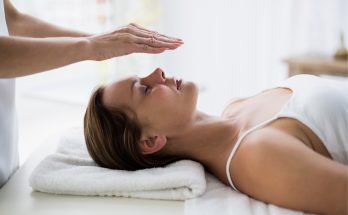On a scale from one to ten, how confident are you in your decision-making abilities? Be honest with yourself.
I trust my judgement for the most part, and as of late, I’ve noticed how spot on I’ve been with my observations and preconceived notions.
Peers have even commended me for my wisdom, along with my ability to discern people and certain situations. Now was I always this sure of myself? Not quite. It took me a minute to get there.
From Insecure to Self-Assured
My early twenties were a time of insecurity and confusion. With the journey to “finding myself” at its beginning stages, that self-assurance I so badly wanted hadn’t fully developed yet.
My biggest challenge was the fact that I’m an overthinker. It was challenging because I didn’t know how to process my thoughts, emotions, and actions with confidence. I would often misinterpret my spot-on judgement as anxiety or paranoia.
Whether I was at peace or something didn’t feel right, I lacked the self-trust needed to make decisions assertively. I would diligently seek advice for every little thing, only to find out that my opinions weren’t too far off from the people I sought advice from.
I’ve grown from my insecurities since then. However, I had to learn some tough lessons along the way to overcome them.
Why You Shouldn’t Second-Guess Yourself so Much
It’s no secret that as women, we have a habit of second-guessing ourselves. Many of us have had those moments where we don’t know whether to trust our instincts or not.
When insecurity takes over and self-doubt kicks in, we’re normally the first to dismiss our feelings and question our actions. Doing this frequently can put a damper on your confidence and self-esteem.
Experts say that when your confidence is low, you’re more prone to doubting yourself and believing that you need validation from others. Studies also show that people who doubt themselves tend to make worse decisions than those who don’t.
There is even such a thing as chronic second-guessing, which goes further to suggest that when you doubt yourself too frequently, it can lead to major psychological issues. It ultimately pushes you down a rabbit hole of anxiety and depression. Not to mention, it’s mentally draining.
Thankfully, there are steps you can start taking today to conquer insecurity and boost your self-confidence.
How to Silence Your Inner Critic
First things first: You must learn to trust yourself. People who struggle with self-doubt usually backpedal when it comes to their thoughts and decisions. This indecisiveness stems from mistrust in your ability to think rationally.
Pay attention to what your gut is telling you when you’re thinking things through. Your instincts are more powerful than you may realize. As you develop a habit of doing this, you’ll start to second-guess yourself less.
Lastly, you need to accept the fact that there will be times when you get it wrong. Your intuition may not be 100% accurate every day of your life, but you shouldn’t beat yourself up whenever it fails you.



